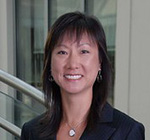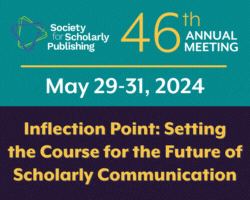Executive Editor
 First, tell us a bit about yourself (hometown, current locale, family, hobbies, community involvement?)
First, tell us a bit about yourself (hometown, current locale, family, hobbies, community involvement?)
Although Washington, DC, has earned a reputation as a transient city, I’ve lived in the area most of my life, on both sides of the Potomac River. I was born in Inchon, Korea, and lived in Bodicote, near the English Cotswolds, from ages 1 to 5, until my family moved to Rockville, MD. An only child, I loved reading and writing, and grew up with a microscope set and a fascination for science and experiments. I focused on microbiology at James Madison University, where I double-majored in English and Biology and helped start a student literary magazine.
Drawn to animals, I’ve been a professional dog trainer since 1999, and I volunteer and fundraise for the US Park Police Horse Mounted Unit. I also enjoy speed and raced my Ducati 848 motorcycle to small regional championships in 2011 and 2012. My current challenge is learning to ride a cutting horse, with the goal of separating a cow from the herd and keeping it from returning. Surely, it will prove a useful talent in DC.
Describe some of your responsibilities, and how you or your organization fit into the scholarly communications web.
As executive editor of the Proceedings of the National Academy of Sciences (PNAS), I am responsible for the editorial and publishing operations of a large, multidisciplinary research journal. Recent projects include developing a strategic plan, conducting an author focus group, launching a new front matter section and blog, and preparing classic papers to celebrate the 100th anniversary of the journal in 2015.
PNAS is fairly unusual because it does not need to return a profit to its parent organization, the National Academy of Sciences. The journal has a breakeven, self-supporting budget from year to year. This system gives PNAS freedom to provide a substantial amount of content for free (everything after 6 months) because the Academy is not expecting income from the journal program, yet it restricts us to initiatives that don’t jeopardize our ability to pay the bills.
In addition to a nontraditional business model, PNAS has a nontraditional editorial model in that every paper has the “seal of approval” of a member of the National Academy of Sciences. Although we are often viewed as a members’ journal, member-contributed papers account for only 5% of submissions and less than a quarter of published papers.
What career path led to your current position?
I stumbled upon a career in scholarly publishing after deciding at the last minute not to go to graduate school in microbiology. At the time, training in both English and science was less common, and my undergraduate degree opened the door at the National Academy of Sciences, where I started as an editorial assistant for the science policy journal, Issues in Science and Technology,in 1986. I quickly found that science publishing was rife with change when Issues, then The Scientist, then Fidia Research Foundation all closed their operations in DC, ending my respective editorial, production, and science writing jobs. I landed at the Society for Neuroscience and launched the self-publishing program for The Journal of Neuroscience, and migrated to PNAS in 1996, first as managing editor and now as executive editor.
Where do you see scholarly communications heading, and what new directions interest you most?
Scholarly communications are in a state of disruption. Anyone can publish, in just about any way, with little training, infrastructure, or money. Databases, preprint servers, journals, and nontraditional publishing outlets proliferate. In this information economy, some long-established journals may fall by the wayside and many more start-ups will fold up shop.
I’m interested in the movement away from reliance on journal brand and impact factor and toward judging researchers and their work on their individual merits for promotion, tenure, and grants. Can the academic reward system be reformed? Will alternative metrics–or altmetrics–such as article views and social media mentions lead to a more holistic reward system or prove as imperfect a measure as the much-maligned impact factor? Will individuals get professional credit for reviewing and editing for journals?
What are some of the surprises/obstacles that you’ve encountered during your career?
Having my office shut down three times in the first years of my career was an unwelcome surprise, but I saw these early career layoffs as opportunities instead of obstacles. The experience taught me to get up to speed quickly –get the job done and get it done well; find faster, better, cheaper ways of operating; experiment and innovate; and learn as much as possible from the organization and people.
What advice would you give to people interested in a career in scholarly communications? What new roles or opportunities do you see emerging in the field?
I’m asked about scholarly communications most often by people with PhDs in science who seek alternative careers. Advanced degrees in science, science writing, and business are a competitive advantage for many positions in publishing but don’t replace experience editing manuscripts; translating scientific or technical information for the public; or reading, writing, and presenting information about different aspects of science publishing.
Keep current on developments in the industry through credible sources of information—respected blogs, authoritative Twitter feeds, innovative websites. Examine the evidence and data, for example on peer review or open access models.
I also recommend learning new skills outside of scholarly communications—whether scuba diving or race car driving. Experiencing different instructors and teaching styles can help you be a better learner, a better instructor, and a better manager. Becoming actively involved—serving on a committee, suggesting meeting topics, becoming a moderator or speaker—with trade associations such as SSP, CSE, ALPSP, and COPE, for example, provides lifelong learning and networking opportunities and exposes you to cutting-edge topics in publishing and the wealth of opinions surrounding them.


